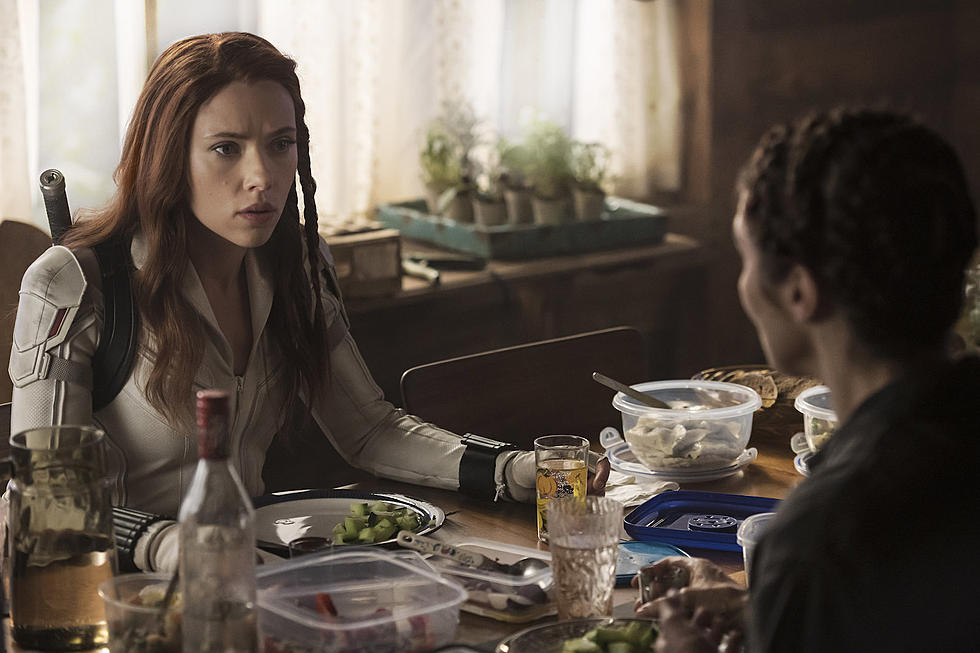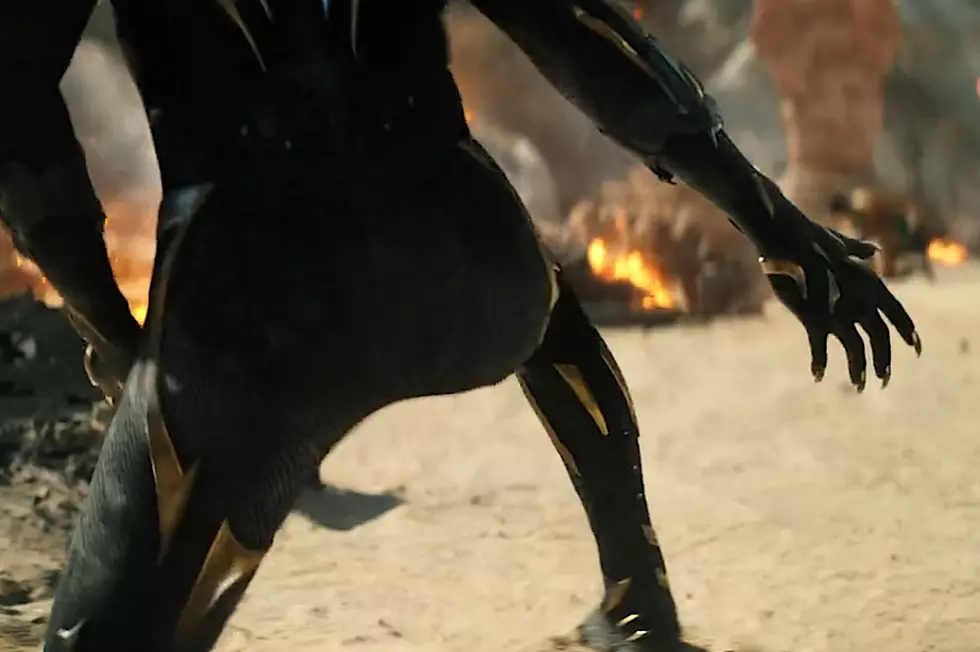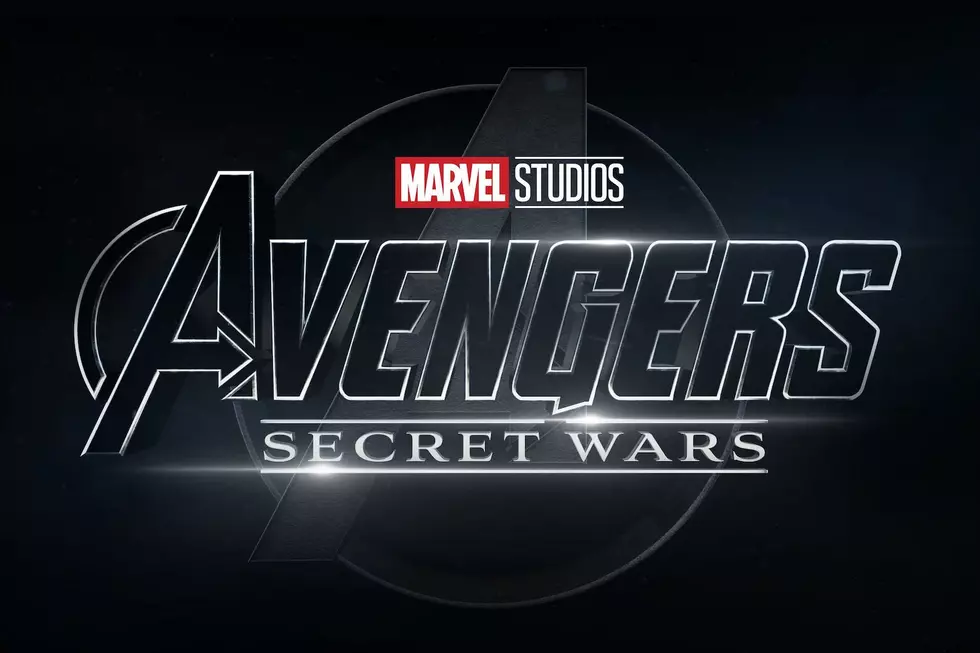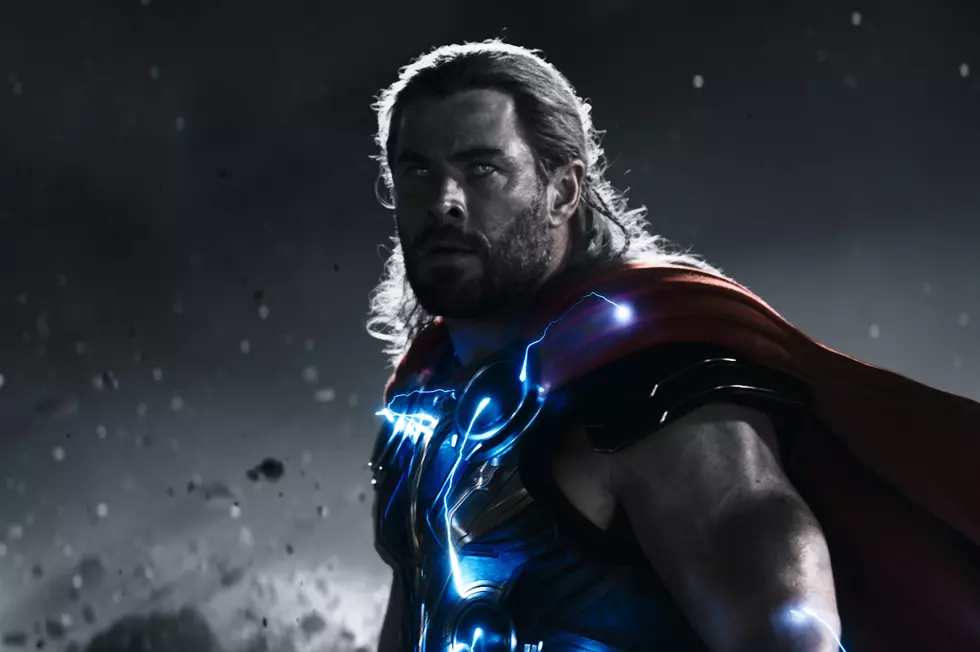
‘Black Widow’ Review: Marvel Goes Back to the Big Screen
This is a good time for fans of enormous blockbusters about outsider misfits who band together to form a surrogate family. There’s already a new Fast & Furious in theaters, F9, where Dominic Toretto’s “family” of street racers does battle with his half-brother Jakob. Now there’s Black Widow, the first Marvel movie to hit theaters after a two-year Covid layoff that, like so many of us, quarantined the Marvel Cinematic Universe at home. Like F9, Black Widow turns domestic drama into fodder for a massive action film, with Scarlett Johansson’s Natasha Romanoff alternately fighting with or beside three other superheroes who, many years before, had been part of a sleeper cell of Russian agents disguised as a happy American family.
Previous Marvel movies introduced Natasha as a S.H.I.E.L.D. agent and then an Avenger, while alluding to a dark past that Black Widow now brings to light. The opening scenes introduce young Natasha as a teenager, living in 1990s Ohio with her “mom” (Rachel Weisz), “dad” (David Harbour), and little sister Yelena. Within minutes, the family is on the run from S.H.I.E.L.D. with some all-important floppy disk. Yelena, only six at the time, is shocked to learn her family isn‘t real, or that they’re all secretly Russian spies. Natasha’s father is actually Red Guardian, the Russian equivalent of Captain America. Her mom is Melina, one of the charter members of the Black Widows, a group of all-female spies and assassins. Upon their return to their homeland, both Natasha and Yelena are sent to the “Red Room,” the place where Black Widows are trained, against their will, using various kinds of mind control.
21 years later, Natasha is back on the wrong side of the law after the events of Captain America: Civil War, where she joined with several other Avengers in violating the “Sokovia Accords” that required all superheroes register and work for the government. (For obvious reasons, Black Widow is set in the recent past, rather than after Avengers: Endgame.) While her current adopted family in ruins, she gets dragged into a mission that involves the other.
She receives an urgent message from the grown-up Yelena (Florence Pugh), now also indoctrinated into the family business of murder-for-hire, and finds her in Budapest, where they’re pursued by a new enemy known as Taskmaster, a Red Room assassin with the ability to mimic any opponent’s moves. (Marvel nerds with Taskmaster-like abilities of observation will spot the character using fight choreography previously employed by Captain America, the Winter Soldier, Black Panther, and others.) Eventually, and reluctantly, they will also reunite with Melina and Red Guardian, now a bumbling, sagging shell of his former self.
While Black Widow is billed as Johansson’s first solo Marvel movie after more than a decade as a supporting player in other heroes’ movies, it’s really more of an ensemble piece, with Pugh’s Yelena as the co-lead and character who undergoes the most significant arc over the course of the story. Once Harbour and Weisz get added into the mix, they all steal scenes from Johansson, who maintains an air of bemused detachment as the sturdy center of this surreal family reunion. Black Widow functions less as a showcase for the title character and more as a sneaky introduction for Pugh, who is drolly hilarious as the deeply cynical Yelena.
Of course, the film consists of more than a messed-up Russian family’s awkward dinner conversations. It’s dominated by action setpieces of surprising scale, at least given the relative intimacy of the character drama and the fact that Black Widow has no formal super powers beyond her impressive fighting skills. Natasha clashes repeatedly with the Taskmaster, who moves through the film with the robotic composure of one of Arnold Schwarzenegger’s Terminators, and there is one very lengthy fight and car chase through a European city. (That’s another parallel with F9 for you.) Another sequence is even more spectacular, and involves a combination of skydiving and hand-to-hand combat so inventive that Tom Cruise will be furious he didn’t think of it first.
If you’re wondering whether it’s worth paying $15 for a ticket (or $30 to watch the film early at home) when Marvel has already given Disney+ subscribers about 12 hours of MCU content this year, you should know that Black Widow is definitely a cut above the Marvel Disney+ series in terms of its sheer size and scope. If you’ve found the action in Marvel’s small-screen productions a little lacking, you shouldn’t have that problem here. There’s a reason DIsney waited all this time to release the film. It clearly was not cheap to produce.
The Marvel shows do have one edge over Black Widow though: Length. Black Widow runs about two hours and 15 minutes, crammed with action from beginning to end. As a result, the film’s main villain, the shadowy creator of the Red Room (Ray Winstone) gets very little screen time or motivation until the final 20 minutes of the movie. As amusing as Johnasson, Pugh, Weisz, and Harbour are together, their characters have done some truly horrible things to the world (not to mention one another) and the film rarely reckons with any of it. The quips between Yelena and Natasha are amusing, but there actually could have been a season of really good television here that got cast aside for the sake of pacing and thrills. Perhaps that’s the future of the Marvel Cinematic Universe: Enormous stunts on the big screen, richer characters on the small screen.
Or perhaps director Cate Shortland recognized that Black Widow is a prequel to a story that has basically already ended, and decided the way to make it exciting was to focus on the characters whose fates weren’t set in stone, particularly Pugh’s. Black Widow’s climax is exciting for that very reason; even if we know that Natasha’s going to go on to appear in the last couple Avengers movies, there’s no guarantee where Yelena, Red Guardian, or Melina might go next. It’s another reminder that we have officially found our way back to summer movie season, that time of year when we don’t get movies about families, just spectacles about “families.”
RATING: 6/10
Sign up for Disney+ here.
Every Marvel Movie Ever Made, Ranked From Worst to First

More From K-Fox 95.5










